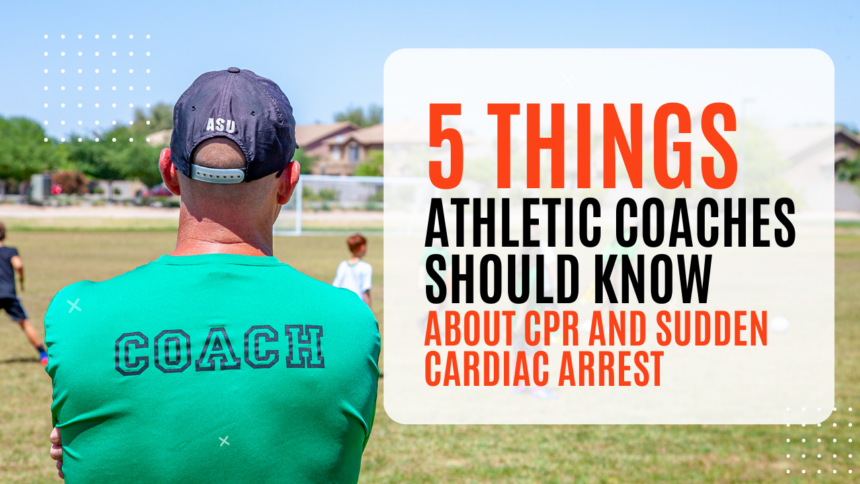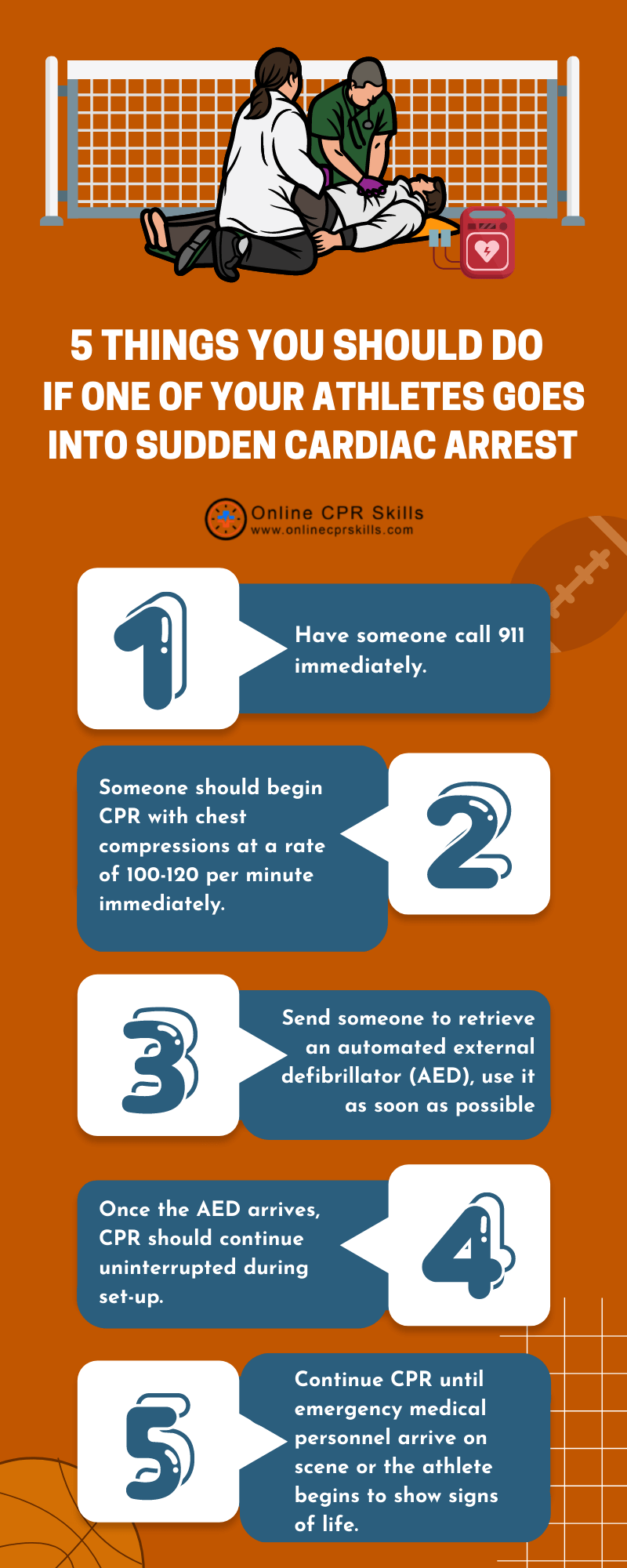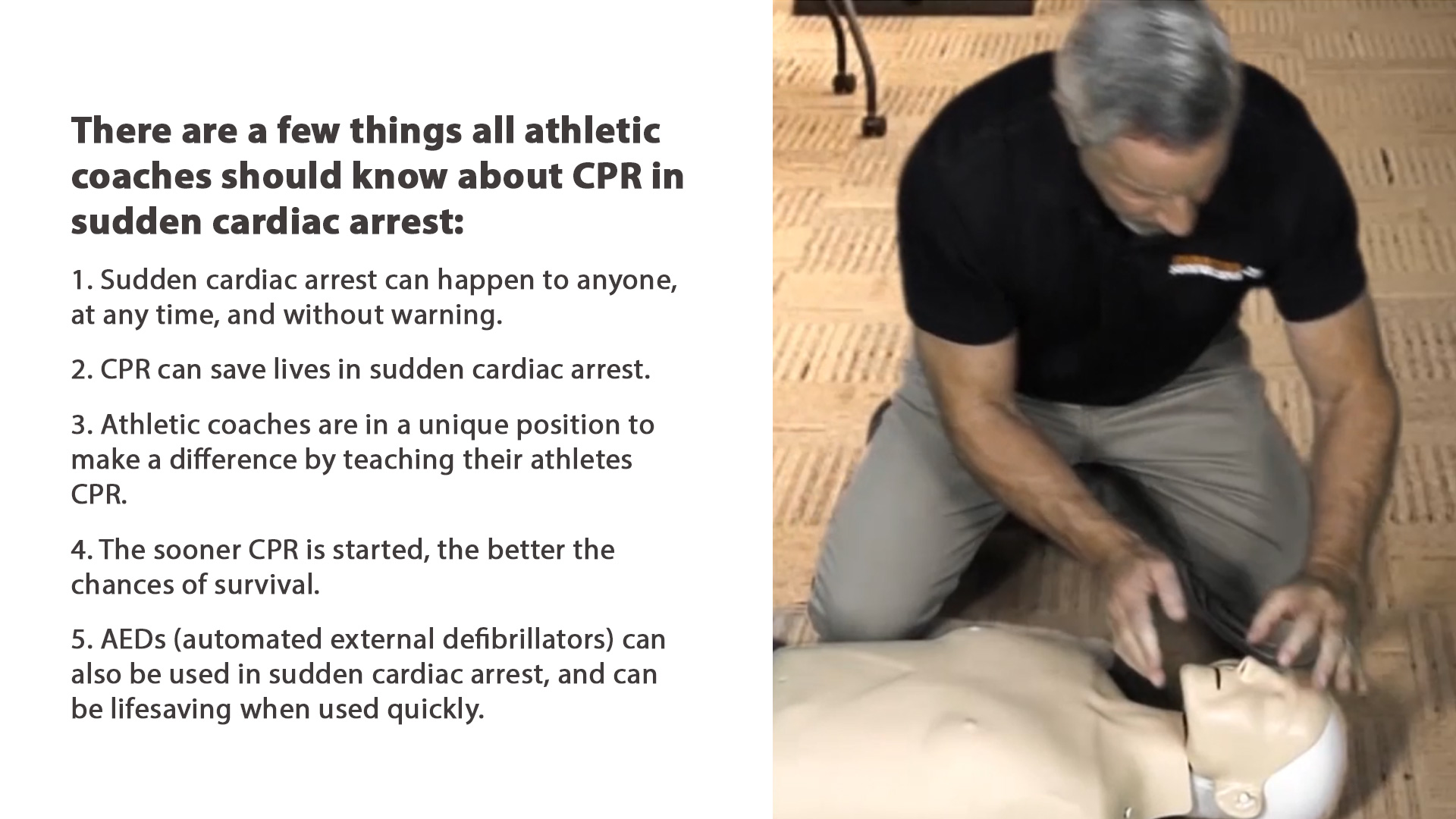5 Things Athletic Coaches Should Know About CPR and Sudden Cardiac Arrest

Athletic Coaches are on the frontlines of safety when it comes to their athletes. It is important to know the basics of administering CPR in case of an emergency situation like sudden cardiac arrest. In this article, we will explore 5 things all coaches should know about CPR and how they can help save a life in the event of an emergency.
Introduction
Sudden cardiac arrest is a leading cause of death in the United States, and many of these deaths could be prevented if more people knew CPR. Athletic coaches are in a unique position to make a difference, as they often work with young people who may be at risk for sudden cardiac arrest.
There are a few things all athletic coaches should know about CPR in sudden cardiac arrest:
- Sudden cardiac arrest can happen to anyone, at any time, and without warning.
- CPR can save lives in sudden cardiac arrest.
- Athletic coaches are in a unique position to make a difference by teaching their athletes CPR.
- The sooner CPR is started, the better the chances of survival.
- AEDs (automated external defibrillators) can also be used in sudden cardiac arrest, and can be lifesaving when used quickly.
What is Sudden Cardiac Arrest (SCA)?
Sudden cardiac arrest (SCA) is a condition in which the heart suddenly stops beating. It usually happens without warning and is often fatal.
When someone has SCA, their blood pressure drops and they stop breathing. This lack of oxygen to the brain can cause irreversible damage.
SCA can happen to anyone, at any age, and it does not discriminate between athletes and non-athletes. In fact, exertion can trigger an SCA event in people with undiagnosed heart conditions.
While SCA is serious, it is also treatable if caught in time. Early intervention with CPR can save a life.
What Causes SCA?
Sudden cardiac arrest (SCA) is a medical emergency that occurs when the heart suddenly stops beating. When this happens, blood stops flowing to the brain and other vital organs. SCA is a leading cause of death in the United States, with more than 350,000 out-of-hospital cardiac arrests occurring each year.
There are many causes of SCA, but the most common is an abnormal heart rhythm called ventricular fibrillation (VF). VF occurs when the electrical impulses that control heart function become chaotic and cause the heart to quiver or stop beating. Other less common causes of SCA include shockable rhythms like pulseless ventricular tachycardia (VT), as well as non-shockable rhythms like asystole and pulseless electrical activity (PEA).
Heart conditions that can lead to SCA include coronary artery disease, cardiomyopathies, and congenital heart defects. Coronary artery disease is the most common cause of SCA in adults, while cardiomyopathies are the most common cause in young people. Congenital heart defects are present at birth and can also lead to SCA later in life.
Certain lifestyle choices can also increase your risk for SCA. These include smoking, drug abuse, heavy alcohol use, and obesity. Having diabetes or high blood pressure can also contribute to your risk for developing SCA.
How to Recognize Signs of SCA
Sudden cardiac arrest (SCA) is a leading cause of death in the United States. Each year, about 350,000 out-of-hospital cardiac arrests occur, and SCA accounts for nearly 1,000 deaths per day.
Many young athletes die from SCA every year. In fact, SCA is the leading cause of death in young athletes. Most SCAs occur with no warning signs. That’s why it’s important for coaches to be prepared to recognize the signs and symptoms of SCA and take action quickly.
The most common signs and symptoms of SCA are:
- Sudden collapse
- Loss of consciousness
- No breathing
- No pulse
If you see someone displaying these signs or symptoms, call 911 immediately and start CPR.
How to Respond in a SCA Emergency
Sudden cardiac arrest (SCA) is a leading cause of death in the United States. Each year, SCA claims the lives of more than 350,000 adults and children.
Although SCA can happen to anyone at any time, athletes are at a higher risk for SCA due to the intense physical activity they participate in. As an athletic coach, it’s important that you are prepared to respond in the event of an SCA emergency.
Here are the 5 things you should do if one of your athletes goes into sudden cardiac arrest:
- Have someone call 911 immediately.
- Someone should begin CPR with chest compressions at a rate of 100-120 per minute immediately.
- Send someone to retrieve an automated external defibrillator (AED), use it as soon as possible.
- Once the AED arrives, CPR should continue uninterrupted during set-up.
- Continue CPR until emergency medical personnel arrive on scene or the athlete begins to show signs of life.
By being prepared to respond quickly and correctly in the event of an SCA emergency, you can help save a life.
CPR training for athletic coaches is vital to ensure that they are prepared to deal with sudden cardiac arrest (SCA). SCA is a leading cause of death in young athletes, and it can happen without warning. That’s why it’s so important for coaches to know how to perform CPR and how to use an automated external defibrillator (AED).
CPR can be the difference between life and death for an athlete who suffers from SCA. That’s why all coaches should take a CPR course so that they are prepared to deal with this potentially life-threatening situation. Many community organizations offer free or low-cost CPR courses, so there’s no excuse for not being properly trained.
An AED is another vital tool that all coaches should be familiar with. This portable device can be used to deliver a lifesaving shock to someone in cardiac arrest. AEDs are now commonly found in public places, such as schools and sports facilities, so it’s important for coaches to know how to use them.
Conclusion
Being properly trained in CPR and familiar with the use of an AED is the responsibility of the coaches. This knowledge and skills can play a vital role in saving the life of an athlete who suffers from SCA. Take some time to brush up on your skills and get certified. You never know when it may make a difference in someone’s life.





Comments are closed.